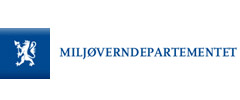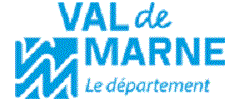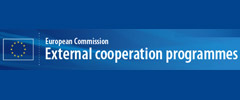Working Together for a Healthy Environment for All
WECF Activity Report 2012 - Join us, as member, partner or sponsor, to work with us on achieving our goal of a Healthy Environment for All!
03.12.2013

Eliminating the root causes of inequality are a pre-requisite for sustainable development. At the Rio+20 summit on sustainable development in 2012 it became once more clear, that better laws to ensure gender equality and reduce income inequalities are an essential first step, alongside reforming the macro-economic causes, such as unfair and unsustainable trade and investment regimes.
More than 50,000 representatives of social movements and civil society organisations took the streets in Rio de Janeiro in June 2012, to demonstrate against unfair and unsustainable economic policies. At the same time, 30,000 participants of the United Nations“Rio+20” conference contributed to the document “the Future we Want” which has set the path towards the “Sustainable DevelopmentGoals”, which will replace the Millennium Development Goals after 2015.
WECF took a leading role in the 2012 Rio+20 conference, as cofacilitator of the “Women’s Major Group”, one of the nine groups ofcivil society which have a space in the UN policy process, and are allotted speaking time and contribute to the proposed negotiation text. WECF’s role was to facilitate the 300 organisations through virtual and face to face meetings, develop joint text proposals for the negotiation text, organise meetings with country negotiators, as well as organising events in which to present the priorities of women’s organisations. As a result of all these many activities by all civil society groups some positive commitments on equality and environmental safe-guards were assured in the results of the Rio+20 conference. In the coming 2 years these commitments need to lead to implementation and commitments for a financial reform towards investments in sustainable and equitable development.
For WECF and partners, the main effort in 2012 was to demonstrate local solutions for inclusive and environmentally friendly development, with full participation and leadership of women. In Uganda and South-Africa women training and development
of food gardens and organic agriculture started, as part of the “Empower Women benefits All - EWA” program. In Ukraine, Georgia and 5 other EECCA countries, “Switch to Sun” was launched, a program to improve and up-scale solar heaters for household and public building in rural areas where the energy services are not or little developed. In Moldova, Kyrgyzstan, Azerbaijan and Tajikistan WECF and partners transferred knowledge and built ecological sanitation systems for schools and households, with the addition
of solar technologies to supply hot water for bathrooms, and solar food processing solutions. Through our capacity building and training programmes more than 500 trained trainers are now able to share their skills.
Many members continued to build skills in the area of policy analysis and advocacy, to propose and push for better legislation and governance. This included the Climate Negotiations in DOHA, were a delegation of WECF members promoted the lessons
learned from the local mitigation projects. Partners in Albania, Serbia and Macedonia organised consumer information and media events to raise awareness about product and chemicals risks, and the need to better protect our children from carcinogenic and hormone- disrupting chemicals.
The WECF offices in France, Germany and the Netherlands shared their expertise in the area of sound chemicals management with the Balkan partners, as well as with partners of the Baltic Sea region. The challenge of strengthening legislation regarding the hundreds of hazardous chemicals in our daily food and products is a common problem for all countries in the world, and we need to share our best practices such as the
WECF Nesting Program which informs consumers and parents on how to avoid and better regulate these harmful substances in the environment of our children.
We invite you to join us, as member, partner or sponsor, to work with us on achieving our goal of a Healthy Environment for All!

































